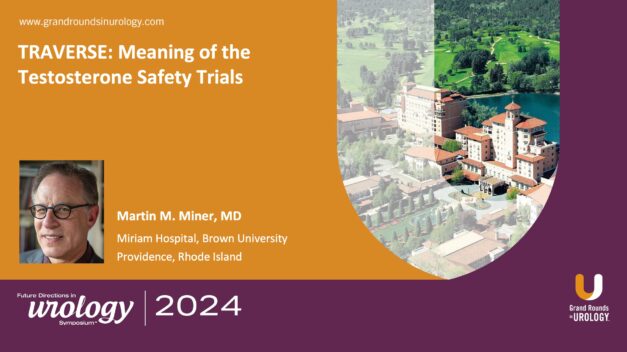TRAVERSE: Meaning of the Testosterone Safety Trials
Martin M. Miner, MD, reviews testosterone safety trials and recent data on the cardiometabolic effects of testosterone, addressing concerns from the FDA about off-label testosterone use among aging men. The TRAVERSE trial, conducted in response to these concerns, examines whether testosterone therapy increases the risk of myocardial infarction or stroke.
In this 12-minute presentation, Dr. Miner provides a comprehensive review of studies from 1940 to 2014, which found minimal evidence suggesting cardiovascular risks associated with testosterone. However, key studies released in 2013-2014 raised concerns about testosterone therapy, indicating a potential increased risk of non-fatal myocardial infarctions. In response, the FDA issued a directive in 2015, leading to the large-scale TRAVERSE trial, a double-blind, placebo-controlled trial that assessed testosterone gel effects over five years.
The TRAVERSE study is notable as the longest randomized, controlled trial on testosterone safety among hypogonadal men to date. Findings indicate that testosterone therapy poses low cardiovascular risk, improves sexual health, and has no significant impact on prostate cancer risk or progression. This suggests that normalized testosterone levels may reduce risks of mortality and adverse cardiovascular events, without elevating prostate cancer concerns.
Read More




